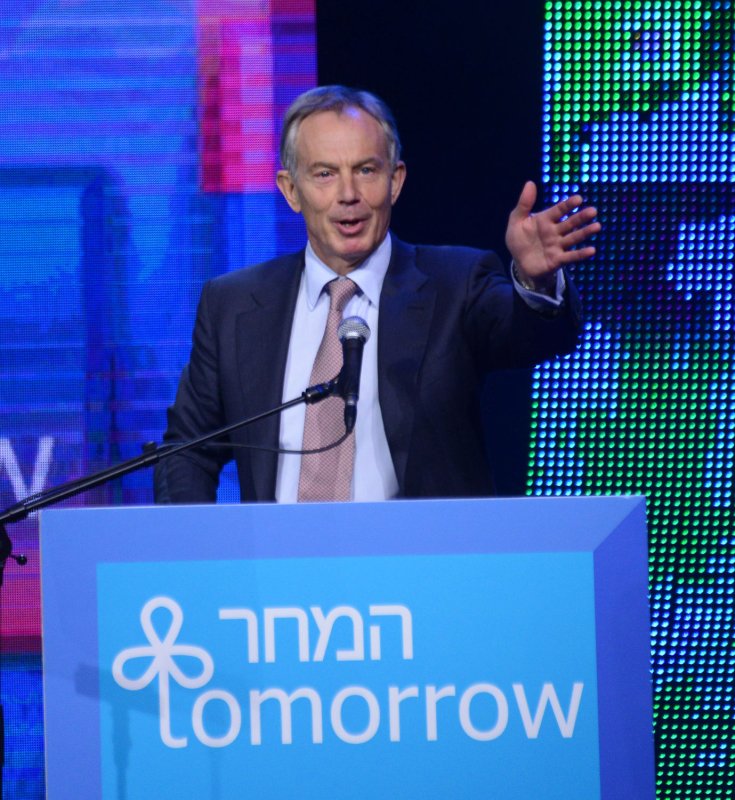Former British Prime Minister Tony Blair speaks at the opening session of the "Facing Tomorrow" Conference, known as The Israeli Presidential Conference, in Jerusalem, June 19, 2013. UPI/Debbie Hill |
License Photo
LONDON, Jan. 28 (UPI) -- Religious extremism, rather than political ideology, will be at the root of the conflicts of the 21st century, former British Prime Minister Tony Blair says.
In a column published Sunday in the British newspaper The Observer, Blair wrote that "people motivated by an abuse of religion" will use a "perversion of faith" to fuel terrorism and other types of conflicts in the coming century, making it the dominant threat to global security.
"The battles of this century are less likely to be the product of extreme political ideology, like those of the 20th century -- but they could easily be fought around the questions of cultural or religious difference," he wrote.
The former prime minister urged global powers to rethink their responses to terrorism to include not only military action and security measures but also a strategy to address what he called "the root cause of extremism" -- the hijacking of religious faith by sectarian political elements.
Citing terrorist attacks in "obvious places" such as Syria, Libya, Iraq, Lebanon, Egypt, Yemen, Tunisia and Pakistan -- as well as conflicts in Nigeria, central Africa, Russia, central Asia, Burma, Thailand and the Philippines -- Blair said the phenomenon of religion-based violence requires "a genuine global strategy to deal with it."
Saying the promotion of religious tolerance is the key to fostering peace in the 21st century, Blair used the column to announce the creation of a new website run by his Faith Foundation in collaboration with the Harvard Divinity School to provide "up-to-date analysis of what is happening in the field of religion and conflict."
Blair, whose policies on Britain's entry into the Iraq War in 2003 is the subject of the ongoing Chilcot Inquiry, appeared to admit that seeking to export Western-style democracy to Middle Eastern nations as a means of addressing terrorism and tyranny is an inadequate response because of the religious extremism of rival sectarian groups.
The failure of his government to plan for the disintegration of Iraq into a sectarian battleground following the overthrow of Saddam Hussein despite warnings it could happen is expected to be one of the key findings of the inquiry when it publishes its report this year.
In the future, Blair wrote, "the purpose should be to change the policy of governments; to start to treat this issue of religious extremism as an issue that is about religion as well as politics, to go to the roots of where a false view of religion is being promulgated and to make it a major item on the agenda of world leaders to combine effectively to combat it. This is a struggle that is only just beginning."
The Observer, citing sources "close to Blair," reported his supporters are insisting he was not in any way apologizing for past interventions by the West, including in Iraq, with the column.
The Chilcot Inquiry is negotiating with the current government of Prime Minister David Cameron over the declassification of key papers relating to the Britain's involvement in the Iraq war, including notes between Blair and then-U.S. President George W. Bush in run-up to the invasion.
More than 130 records of conversations between Blair, fellow-ex Prime Minister Gordon Brown and Bush are also being sought, the BBC reported.





